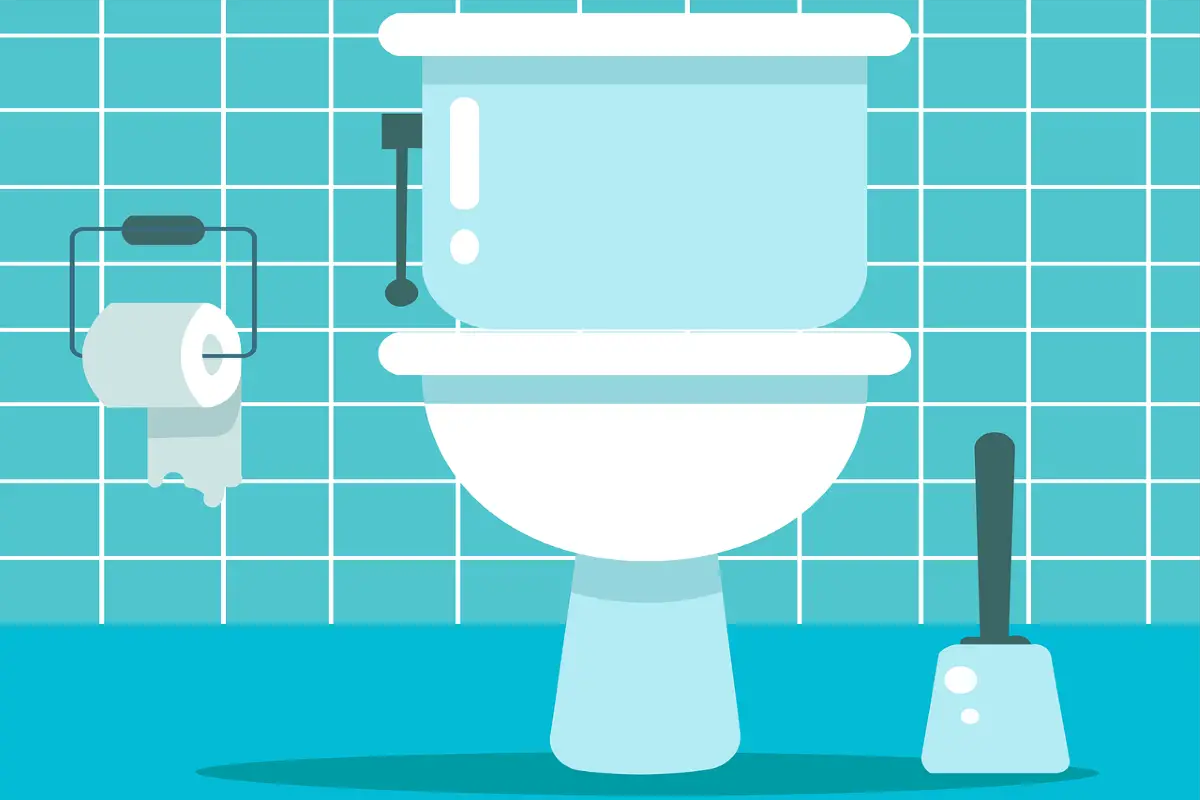Drano is a well-known and widely used household product. When it comes to unclogging drains, Drano is one of the most prominent names in the business. However, when it comes to using Drano on your toilet, there are a few things you should know.
Drano is a powerful chemical product that can damage your pipes and plumbing system, and your toilet has thin pipes. This is why it is not recommended to use Drano in a toilet. If you need to unclog your toilet, try using a plunger or calling a professional.
Where Can You Use Drano?
You can use Drano in any pipe made of plastic, PVC, or metal (including galvanized steel and cast iron). You can use it in your kitchen sink, bathroom, tub, and shower drains.
Drano should not be used in toilets, garbage disposals, dishwashers, or with any other chemicals. Call a plumber or professional services if you have questions about your particular plumbing situation and whether or not Drano is safe to use.
What Happens When You Use Drano In A Toilet?
Drano is a powerful chemical that is designed to clear clogs in drains. It contains lye, sodium hydroxide, and sodium nitrate. Using Drano in a toilet will create a small explosion as the Drano meets with the water in the toilet bowl. This explosion can crack the toilet bowl or even break pieces off.
The damage can be severe enough that you may need to replace your entire toilet. In addition, the harmful chemicals in Drano will harm you.
If your sink is clogged, however, Drano can be helpful – as long as you take precautions, like wearing gloves and keeping children and pets away from it while it’s working.
Using Drano in your toilet can cause the toilet to clog, overflow, or explode. All of these problems are very difficult to clean up, and they are likely to damage your bathroom.
Is It Advisable To Use Hot Water To Unclog A Toilet?
Yes, it is advisable to use hot water to unclog a toilet. When you pour hot water down a clogged toilet, it can help break up any hair or soap scum in the drain, which may be causing the clog. However, you must use extreme caution when pouring hot water down a clogged toilet, as this could cause it to overflow. However, do not use boiling water as this could damage your plumbing and potentially cause burns to you or anyone nearby.
Will Using Bleach Help Unclog A Toilet?
We’ve all been there before: a toilet clogged so badly that you’re seriously considering calling a plumber. But there’s something else you haven’t tried yet – bleach. Yes, you heard it right, bleach. However, there are some precautions to take when using bleach.
First, if the clog is due to an object accidentally flushed down the toilet, you’ll want to try removing it yourself. It’s always best to avoid chemicals like bleach in the case of a clog caused by an object since they can corrode or damage them.
In addition, you want to make sure that tree roots don’t block the drain before you go using bleach in your toilet. This blockage will require more attention than pouring bleach down the drain.
Finally, it’s much better to use caution when using chemical agents such as bleach on any drain since they can potentially cause damage over time and may not be effective on their own against more challenging clogs.
If your toilet is still partially working but slow to drain or flushing slowly, it is likely just dealing with a partial blockage or one from less dense materials such as hair and soap scum. If this is the case, then yes! Using bleach will help unclog your toilet!
Is Dish Soap Useful When Unclogging A Toilet?
When you’re faced with a clogged toilet, you might be tempted to try anything. You’ve heard that dish soap can sometimes be effective in loosening the blockage, but is this true? And if it is true, how does it work?
The good news is that dish soap can help in some cases. But here’s what you need to know before you start pouring.
First, the theory: dish soap contains a mixture of detergents that can break up grease, which is often a primary cause of toilet clogs. Next, the practice: don’t just pour the whole bottle into your toilet. This can worsen by adding even more material to an already-clogged drain. Instead, use about a ¼ cup of dish soap and gently pour it into the bowl. If you have a plunger available, use it after pouring the soap to help loosen the obstruction and get things flowing again.
It’s important to remember that while dish soap may be helpful in some cases, there are also other things that could potentially cause or worsen your clog – and these situations call for different products or services.
Dish Soap vs. Drain Cleaner
Dish soap works on clogged drains by breaking down grease inside the pipe using surfactants (a kind of molecule with one end that likes water and one end that hates it). This action causes the grease to dissolve and allows water to flow through the pipe again. In contrast, drain cleaners contain caustic chemicals such as sulfuric acid or sodium hydroxide (also known as lye), which break down clogs in pipes by reacting chemically with them.
Tips To Keep Your Toilet Clog-Free
We all know what it’s like to have a backed-up toilet. You’ve got company over, and suddenly you hear that sound. The one that makes your heart stop because you know what it means—and it can’t be undone.
Luckily, you can take some simple steps to make sure this never happens to you again. Here’s how to keep your toilet clog-free:
- Don’t use the toilet as a trashcan! We know it seems tempting—you’ve cleaned up everywhere else in the house, but now you need to get rid of that wrapper from the sandwich you ate an hour ago, so why not just drop it in the toilet?
But here’s the deal: that might seem like an easy way out, but if it goes too far down into your pipes, it can get stuck in there and cause a significant clog. And when that clog happens, things will get real ugly real fast.
- What if you already have a clog? Well, don’t panic! It’s not over yet. A quick call to your plumber is going to fix this problem right up for you.
Conclusion
This Drano in the toilet situation may look funny now, but an exploding toilet can cause severe damage to your home and your body. What’s more, you could face a tough cleanup job, too. It’s best to avoid the hazardous chemical reaction altogether by not dropping Drano into your commode. And if you’re in a situation where you need to remove a clog from your toilet, try some non-toxic methods first. They work just as well as a commercial product – if not better. After all, there’s no need to risk hurting yourself or causing property damage for a clogged toilet when there are plenty of other options out there.
You May Like These Articles As Well:
 Being Human
Being Human





